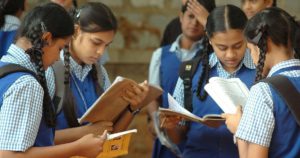We have all heard about it, but are they valuable for students? We all have been in a situation where we have a lot of work to complete, but unfortunately, we can do only one at a time. Doing work one at a time actually takes up a lot of time, and you are left with lesser time to conclude other tasks. Well, one of the solutions to this problem is multitasking. Now you would be wondering if multitasking is actually a good thing or not.
People often ask you to avoid multitasking as you cannot concentrate on one particular task, which reduces efficiency. That cannot be denied entirely; therefore, it is necessary that you wisely choose the tasks you want to multitask with. Studying two subjects simultaneously is a bad example of multitasking, but reading the newspaper while having your breakfast or lunch is a good way of multitasking which helps you complete the newspaper reading while you are actually finishing your daily chores.
Multitasking is performing two or more tasks simultaneously. What needs to be kept in mind is that while multitasking, we should not compromise on the quality of the task as that will dilute the real goal behind multitasking. While preparing for any competitive examination like JEE, covering a vast syllabus with utmost precision and accuracy is a heavy task to perform.
To keep yourself motivated and keep moving, we must rest and take breaks between preparation. Sometimes these breaks actually make us feel guilty that we are wasting time, so we end up with less time for ourselves. In such situations, multitasking is an excellent way to take a break yet not leave your studies altogether.
Tips on Multitasking:
- Do not multitask serious activities:
Multitasking is an excellent way of doing more work in less time, but remember that multitasking two heavy tasks, like two subjects simultaneously, can actually end in a disaster. You may end up not concentrating on any and lose all the time you had. Therefore, pick up two tasks, which are lighter than the other, like walking and listening, eating and reading.
- Always make sure what you want to do:
Before beginning your tasks, be clear of your goals, the work at hand, and how you plan to complete them. Not having a good plan in action can hamper both of your tasks. If you plan to revise your notes when you have lunch, make sure you have decided in advance which subject you want to revise and topics you want to complete. So that you do not waste more time finding the topic to be read.
- Bring inline both the tasks with each other:
If you have planned to watch a video while you go for a walk, that’s a bad idea. So the task that you multitask in should be complementary to each other. So bring inline both the tasks you plan on doing because doing either of the work in halves will bring you no gain.
- Keep the tasks handy:
Whenever you are multitasking, make sure that you are not doing activities that require many books, pencils, calculators. For multitasking skills, things should be handy so that you do not waste time organizing things and starting the tasks. For example, do not carry your books along if you are going outside for a break and want to revise some formulae or a topic. Make sure that whatever you have to revise is in the form of notes, either on your phone or some loose sheets. This will actually encourage you to do the work. Carrying heavy books will be a task in itself, and you will end up not doing anything at all.
- Work on the related tasks together:
Picking up two subject books simultaneously is not multitasking but wastage of time. Whereas practising the questions of a particular topic and revising your notes is an effective way to study. Therefore, while multitasking, you must pick up related tasks together and randomly start any task at hand. Working on the associated tasks simultaneously will make your work more efficient as you will be more productive.
While the above points must be kept in mind while multitasking, it is also essential to practice it for a long time to become perfect. When not practised correctly or if the tips are not taken care of, some of the students, instead of deriving benefits from it, end up wasting their time and reducing their productivity by not concentrating on a single task. Therefore, make sure you multitask your work efficiently and derive maximum benefits.
Having talked about what to keep in mind while multitasking, let us now see why multitasking skills are needed and what are the advantages of multitasking:
Advantages of Multitasking
- Saves time:
When you have to complete two simultaneous tasks, multitasking is better than dedicating individual time to both. This saves you a lot of time, and you can actually utilize the time saved in either improving your task or completing other tasks which are due. Thus multitasking helps you save time and become more efficient with time.
- Increases productivity:
Multitasking skills increase your efficiency as simultaneously working will help train your brain to work more effectively. Revising your notes during lunch or reading the newspaper during breakfast trains your brain to work in a particular fashion. Once you have practised this technique for a long time. Every time you sit for lunch or breakfast, your mind will work similarly, and you will start looking for something to read. This always helps you increase your productivity by working your brain in two places simultaneously.
- Reduces procrastination:
Procrastination is delaying the work at hand. When multitasking, you save yourself time and increase your productivity, which actually encourages and motivates you to complete the job at hand as and when possible, reducing procrastination. As the exams draw, closer the students tend to be so busy revising their notes that they delay solving the previous year’s paper or test series.
One can actually pick up a subject and do questions simultaneously in such a situation. Keep solving the questions and as and when the topic comes up, revise the topic as well. This way, you will understand what type of questions can be asked and also, you will not delay the question-solving session.
While multitasking skills have their share of advantages, many students will be confused about using multitasking during their preparation. Well, we have provided you with the practical ways in which multitasking skills can be used by students:
The students have to switch between school and coaching during the JEE preparation. In such a scenario, they have to simultaneously handle the school work and JEE preparation, but thankfully they have multitasking at their help.
Keep following PracBee for more Information and updates.



